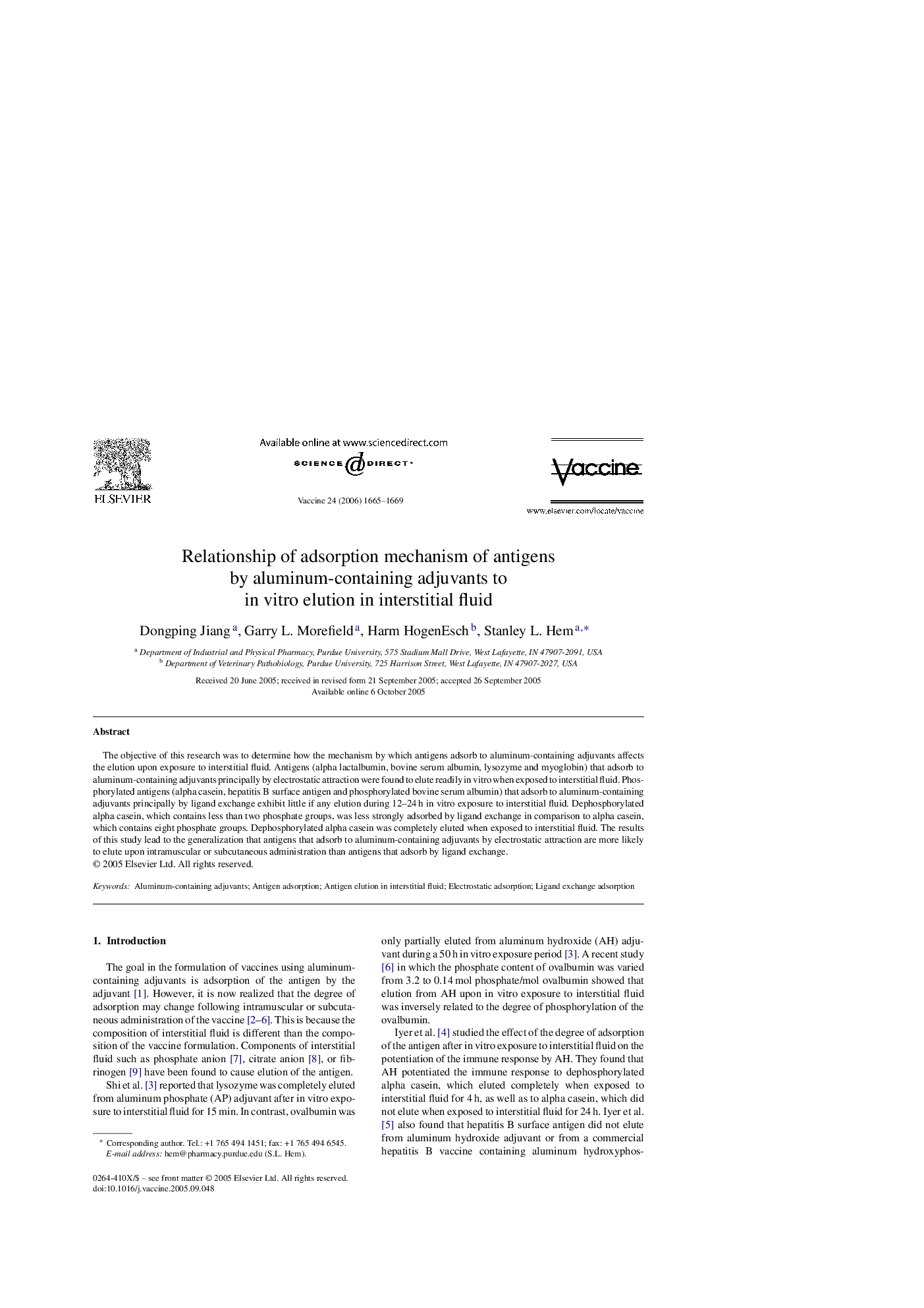| Article ID | Journal | Published Year | Pages | File Type |
|---|---|---|---|---|
| 2407876 | Vaccine | 2006 | 5 Pages |
The objective of this research was to determine how the mechanism by which antigens adsorb to aluminum-containing adjuvants affects the elution upon exposure to interstitial fluid. Antigens (alpha lactalbumin, bovine serum albumin, lysozyme and myoglobin) that adsorb to aluminum-containing adjuvants principally by electrostatic attraction were found to elute readily in vitro when exposed to interstitial fluid. Phosphorylated antigens (alpha casein, hepatitis B surface antigen and phosphorylated bovine serum albumin) that adsorb to aluminum-containing adjuvants principally by ligand exchange exhibit little if any elution during 12–24 h in vitro exposure to interstitial fluid. Dephosphorylated alpha casein, which contains less than two phosphate groups, was less strongly adsorbed by ligand exchange in comparison to alpha casein, which contains eight phosphate groups. Dephosphorylated alpha casein was completely eluted when exposed to interstitial fluid. The results of this study lead to the generalization that antigens that adsorb to aluminum-containing adjuvants by electrostatic attraction are more likely to elute upon intramuscular or subcutaneous administration than antigens that adsorb by ligand exchange.
